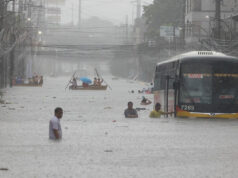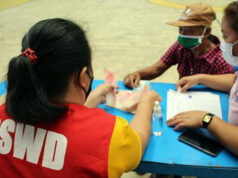Areas outside ECQ should still close schools, prohibit mass gatherings
SCHOOLS should remain closed and mass gathering prohibited even in areas considered to be at low and moderate risk for the coronavirus disease 2019 (COVID-19) said government. These areas will be placed under general community quarantine or GCQ, a more limited form of quarantine than the enhanced community quarantine (ECQ) which has been imposed on the NCR and the rest of Luzon since March 15.
On Friday, Palace Spokesperson Harry L. Roque said that based on recommendations of the Inter-Agency task force for the Management of Emerging Infectious Diseases (IATF-EID), areas that will not be covered by the ECQ after April 30 should still consider closing schools and other areas that attract large crowds.
These regions and areas should consider completely closing the following: schools, leisure places, amusement parks, gaming businesses, fitness gyms, “kid” industries, and tourism establishments. Mass gatherings such as conferences and religious events, should also be prohibited.
The opening of malls and construction will be limited under GCQ. Only stores that deliver basic goods and services will be opened, and only people between the ages of 21 to 59 will be allowed to enter. Social distancing will also be observed.
The task force also recommended that schools should open later in September, although Socioeconomic Chief Karl Kendrick T. Chua said that the education department will still have to issue its own recommendations as the law dictates the start of the school year should begin in June.
“Ang napresent ay for consideration lamang. Ang gusto iparating ng DepEd ay magprepresent sila sa IATF ng kanilang recommendation (What is presented is for consideration. The Department of Education will still present their recommendations),” Mr. Chua said.
Earlier this week, Education Secretary Leonor M. Briones said they are eyeing to open schools this August after they have conducted consultations with stakeholders.
Meanwhile, selected projects under the Build, Build, Build program will be allowed to continue even during the COVID-19 crisis. Mr. Roque said this is important because infrastructure will help stimulate the economy. Those allowed to operate will be required to observe health standards and physical distancing, and provide barracks for construction workers.
A number of industries will be allowed to open in areas covered under the GCQ. Workers from Category 1, 2, and 3 will be allowed to go to work.
Category 1 are industries permitted for 100% opening during the GCQ. These are agriculture, fishery, forestry; food manufacturing and its entire supply chain (including ink, packaging, raw materials, etc.); food retail (supermarket, market, restaurants for takeout and delivery only); healthcare (hospitals, clinics, drugstores); logistics; water; energy; internet and telecoms; and media.
Category 2 are industries that are allowed to open 50% to 100% during the GCQ. These are electronics and exports manufacturing; e-commerce and delivery for essential and non-essential items; repair and maintenance services; and housing and office services.
Category 3 are those subject to 50% on site and 50% work from home which are financial services; BP; other non-leisure wholesale and retail trade; and other non-leisure services.
Workers from Category 4, which include schools, leisure, and tourism businesses, will not be allowed to work during the GCQ.
On Friday, the government announced that COVID-19 high risk areas such as the National Capital Region, Region III (Central Luzon), and Region IV-A (CALABARZON covering Cavite, Laguna, Rizal, and Quezon), and other identified provinces will remain under ECQ until May 15. — Gillian M. Cortez



